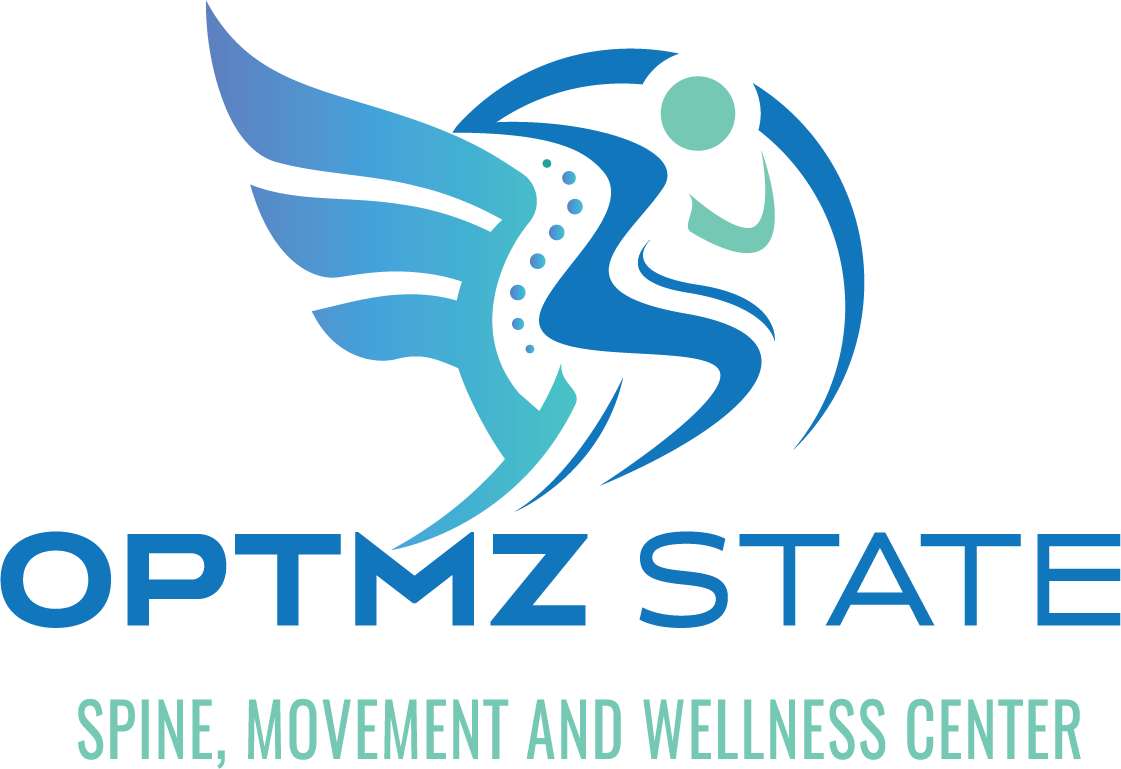When you're dealing with back pain, it's easy to feel overwhelmed and unsure of where to turn. Trusting your spine to a professional can make all the difference in understanding the root causes of your discomfort. A specialist not only offers targeted treatment options but also equips you with insights about your body's mechanics. You're probably wondering what kind of specialists are available and how they can tailor their approach to your unique situation. The answers might surprise you and could be the key to your journey toward lasting relief.
Understanding Back Pain
Back pain can hit you out of nowhere, leaving you wondering what went wrong. Maybe you lifted something too heavy, or perhaps you've been sitting for hours in a poor posture. Understanding back pain means recognizing its potential causes and how they affect you. It's not just a symptom; it's a signal from your body that something's off.
You've got to take into account that your back is a complex structure, consisting of bones, muscles, ligaments, and nerves. Any strain or injury to these components can lead to pain. Muscle strains are common culprits, often caused by overexertion or awkward movements. Herniated discs can also be a source of discomfort, pressing on nearby nerves and causing sharp pain that can radiate down your legs.
Additionally, factors like stress and a sedentary lifestyle play a significant role. When you're stressed, your muscles tense up, especially in your back. If you're not active enough, your muscles weaken, making them more susceptible to injury. You might even develop chronic pain if you don't take care of these issues early on.
Understanding your own body is key. Pay attention to how your back feels during different activities, and take note of any patterns. This awareness can help you identify what triggers your pain and guide you towards effective prevention strategies.
Importance of Professional Help
When you're dealing with back pain, getting professional help is essential.
An expert can provide an accurate diagnosis and create a customized treatment plan tailored to your needs.
This targeted approach not only speeds up recovery but also prevents future issues.
Expert Diagnosis Matters
Seeking expert diagnosis is essential for effective back pain relief. When you're dealing with discomfort, it can be tempting to self-diagnose or rely on online resources. However, this can lead to misunderstandings about your condition.
A professional evaluation helps identify the root cause of your pain, whether it's a muscle strain, herniated disc, or something else entirely. An expert's insight guarantees you don't overlook serious issues that require immediate attention.
They can perform specific tests and imaging studies that you mightn't consider, revealing underlying problems that could worsen without proper care.
Moreover, when you consult a qualified professional, you get tailored advice that addresses your unique situation. They use their experience and knowledge to interpret your symptoms accurately, guiding you through the complexities of your back pain.
Customized Treatment Plans
After receiving an expert diagnosis, the next step is developing a customized treatment plan tailored to your specific needs. A one-size-fits-all approach simply won't cut it when it comes to back pain relief.
By working closely with a professional, you can guarantee that your plan addresses the root cause of your discomfort and suits your lifestyle.
Here are four key components to take into account in your customized treatment plan:
- Physical Therapy: Engaging in targeted exercises can strengthen your back and improve flexibility, helping to alleviate pain.
- Pain Management: Your plan may include medications or alternative therapies, like acupuncture, to help manage your symptoms effectively.
- Lifestyle Adjustments: A professional can guide you in making changes, such as improving posture, ergonomics at work, or incorporating regular activity into your daily routine.
- Ongoing Assessment: Regular follow-ups allow your treatment plan to evolve based on your progress, guaranteeing ideal results.
Investing in a personalized approach can greatly enhance your recovery journey, making it easier to get back to the activities you love.
Trust the experts to guide you toward lasting relief.
Types of Spine Specialists
Understanding the different types of spine specialists can greatly impact your journey to back pain relief. When you're dealing with back pain, knowing whom to consult is essential.
Spine specialists generally fall into two main categories: orthopedic surgeons and neurosurgeons.
Orthopedic surgeons focus on the musculoskeletal system, which includes bones, joints, ligaments, and muscles. If your back pain stems from structural issues like herniated discs or spinal fractures, an orthopedic surgeon can provide targeted treatment options.
On the other hand, neurosurgeons specialize in the brain, spine, and nervous system. They're well-equipped to handle conditions involving nerve compression or pain linked to spinal cord injuries. If your pain is associated with nerve-related issues, a neurosurgeon might be the right choice for you.
In addition to these two primary categories, you might also consider consulting a physical medicine and rehabilitation (PM&R) specialist, often called a physiatrist. These experts focus on non-surgical approaches to back pain and can develop thorough rehabilitation plans.
Chiropractors and osteopathic physicians are other valuable resources. Chiropractors primarily use manual adjustments to alleviate pain and improve functionality, while osteopathic physicians take a holistic approach, considering your entire body's systems.
Whichever specialist you choose, make sure they're experienced in treating your specific type of back pain. Doing so can lead you to the most effective treatment and get you back on track to a pain-free life.
Common Treatment Methods
When you're dealing with back pain, exploring common treatment methods can make a big difference.
Physical therapy techniques can help strengthen your back and improve mobility, while chiropractic adjustments may provide immediate relief.
Let's take a closer look at how these approaches can benefit you.
Physical Therapy Techniques
Physical therapy techniques play an essential role in relieving back pain and restoring mobility. With a personalized approach, these methods focus on strengthening your muscles, improving flexibility, and enhancing your overall function.
Here are four common techniques you might encounter during your therapy sessions:
- Therapeutic Exercises: You'll engage in targeted exercises designed to strengthen your core and back muscles, helping to support your spine and reduce pain.
- Manual Therapy: This hands-on approach involves techniques like soft tissue mobilization and joint manipulation, which can ease tension and improve circulation in the affected areas.
- Heat and Cold Therapy: Applying heat can relax tight muscles, while cold therapy reduces inflammation. Your therapist will guide you on when to use each method for maximum benefit.
- Education and Posture Training: You'll learn about proper body mechanics and postural alignment, empowering you to make daily adjustments that can prevent future injuries.
Incorporating these techniques into your treatment plan can greatly enhance your recovery process.
Chiropractic Adjustments Benefits
Chiropractic adjustments offer a range of benefits that can greatly enhance your back pain relief journey. By realigning your spine, these adjustments help reduce nerve irritation, which is often a source of pain. You'll likely experience an immediate reduction in discomfort, allowing you to return to your daily activities more comfortably.
Moreover, chiropractic care promotes better mobility. When your spine is properly aligned, your body moves more freely, making it easier to engage in physical activities and exercises that strengthen your back. This can lead to long-term relief and improved overall health.
Regular chiropractic visits can also boost your body's natural healing processes. As you receive adjustments, your circulation improves, providing essential nutrients to your muscles and tissues. This helps accelerate recovery from injuries and reduces inflammation.
Finally, many people find that chiropractic adjustments help alleviate stress. When your spine is in alignment, you may notice a reduction in tension throughout your body, making it easier to manage the everyday stresses of life.
With consistent care, you can experience not only relief from back pain but also an enhanced sense of well-being. Trust a professional to guide you on this path to recovery.
Benefits of Personalized Care
In recent years, personalized care has emerged as a game changer in back pain relief. This approach tailors treatment plans specifically to your unique needs, ensuring that you receive the most effective and relevant care. When you choose personalized care, you're not just a number; you're an individual with specific concerns and goals.
Here are some key benefits you can expect:
- Targeted Treatments: Personalized care allows your healthcare provider to focus on the specific areas causing you pain. By analyzing your condition and lifestyle, they can create a targeted treatment plan that addresses your unique issues.
- Improved Recovery Time: When treatments are tailored to your individual needs, you're likely to experience faster recovery. Personalized care can help identify the most effective therapies for you, minimizing trial and error.
- Enhanced Communication: With personalized care, you'll have a more open line of communication with your healthcare provider. This relationship fosters trust and makes it easier to discuss your symptoms, concerns, and progress.
- Holistic Approach: Personalized care often considers your overall well-being, including physical, emotional, and psychological factors. This holistic approach can lead to more thorough pain relief and long-term health improvements.
When to Seek Help
Recognizing when to seek help for back pain can be essential for your recovery and overall well-being. If you've been experiencing discomfort for more than a few weeks without improvement, it's time to consult a professional. Persistent pain often signals an underlying issue that needs attention, and ignoring it could lead to more serious complications.
You should also seek help if your back pain is accompanied by other symptoms, such as numbness, tingling, or weakness in your legs. These signs might indicate nerve involvement, which requires immediate evaluation.
Additionally, if your pain follows an injury—like a fall or accident—don't wait to get it checked out. Early intervention can prevent further damage.
If your pain disrupts daily activities, like getting out of bed or sitting at your desk, consider reaching out for assistance. Quality of life matters, and there's no reason to suffer through each day.
You'll also want to seek help if you're experiencing unexplained weight loss, fever, or bowel/bladder issues, as these could indicate more serious medical conditions.
Finally, trust your instincts. If something feels off or your pain worsens, don't hesitate to ask for help. Remember, the sooner you seek professional advice, the quicker you can start your journey toward relief and regain control over your life.
Prioritize your health—it's worth it!
Conclusion
To sum up, trusting your spine to a professional is essential for effective back pain relief. By seeking help from specialists, you'll gain a better understanding of your body and receive personalized treatment tailored to your needs. Don't let back pain control your life—take the first step toward lasting relief and improved well-being. Remember, prioritizing professional care not only helps alleviate discomfort but also equips you with the knowledge to prevent future injuries. Your spine deserves it!



